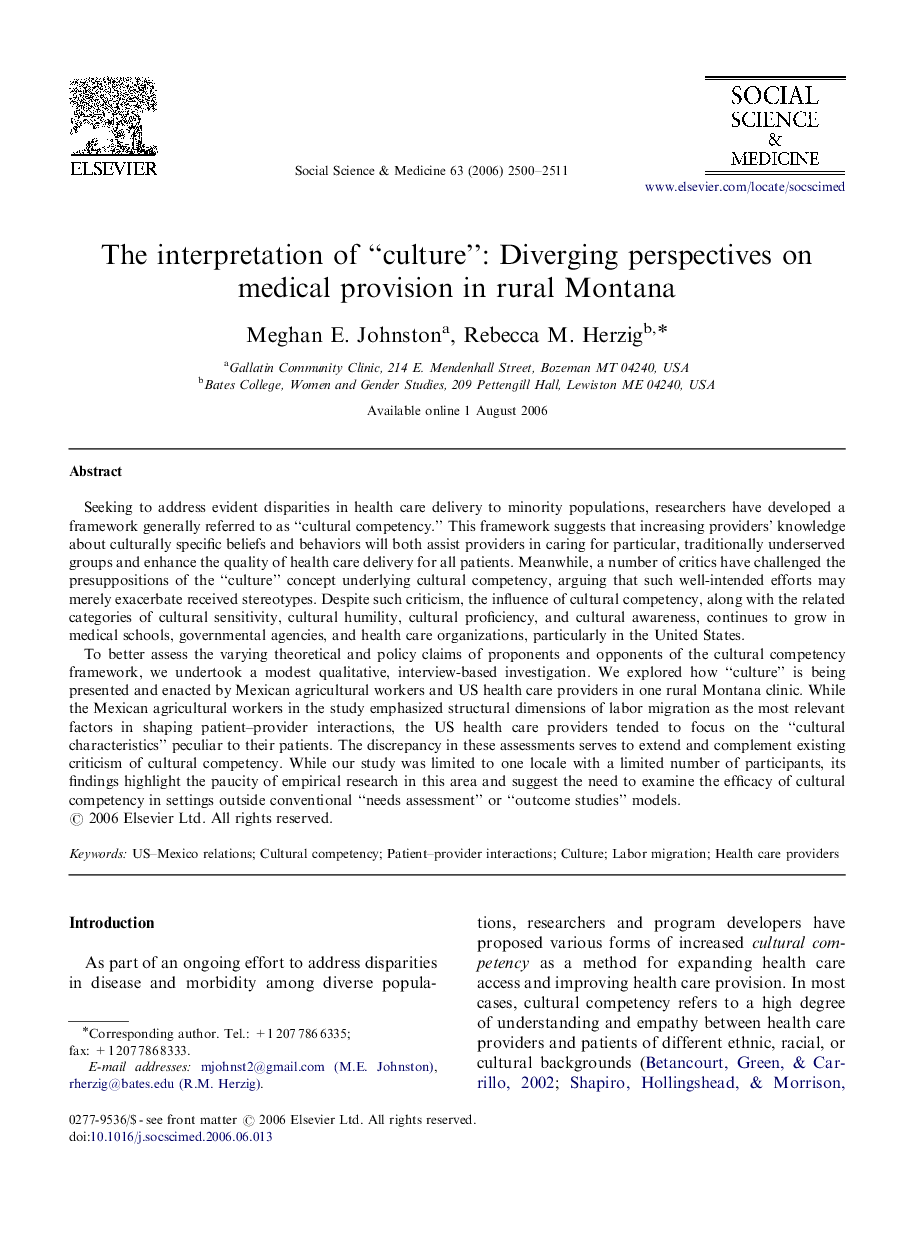| Article ID | Journal | Published Year | Pages | File Type |
|---|---|---|---|---|
| 954860 | Social Science & Medicine | 2006 | 12 Pages |
Seeking to address evident disparities in health care delivery to minority populations, researchers have developed a framework generally referred to as “cultural competency.” This framework suggests that increasing providers’ knowledge about culturally specific beliefs and behaviors will both assist providers in caring for particular, traditionally underserved groups and enhance the quality of health care delivery for all patients. Meanwhile, a number of critics have challenged the presuppositions of the “culture” concept underlying cultural competency, arguing that such well-intended efforts may merely exacerbate received stereotypes. Despite such criticism, the influence of cultural competency, along with the related categories of cultural sensitivity, cultural humility, cultural proficiency, and cultural awareness, continues to grow in medical schools, governmental agencies, and health care organizations, particularly in the United States.To better assess the varying theoretical and policy claims of proponents and opponents of the cultural competency framework, we undertook a modest qualitative, interview-based investigation. We explored how “culture” is being presented and enacted by Mexican agricultural workers and US health care providers in one rural Montana clinic. While the Mexican agricultural workers in the study emphasized structural dimensions of labor migration as the most relevant factors in shaping patient–provider interactions, the US health care providers tended to focus on the “cultural characteristics” peculiar to their patients. The discrepancy in these assessments serves to extend and complement existing criticism of cultural competency. While our study was limited to one locale with a limited number of participants, its findings highlight the paucity of empirical research in this area and suggest the need to examine the efficacy of cultural competency in settings outside conventional “needs assessment” or “outcome studies” models.
